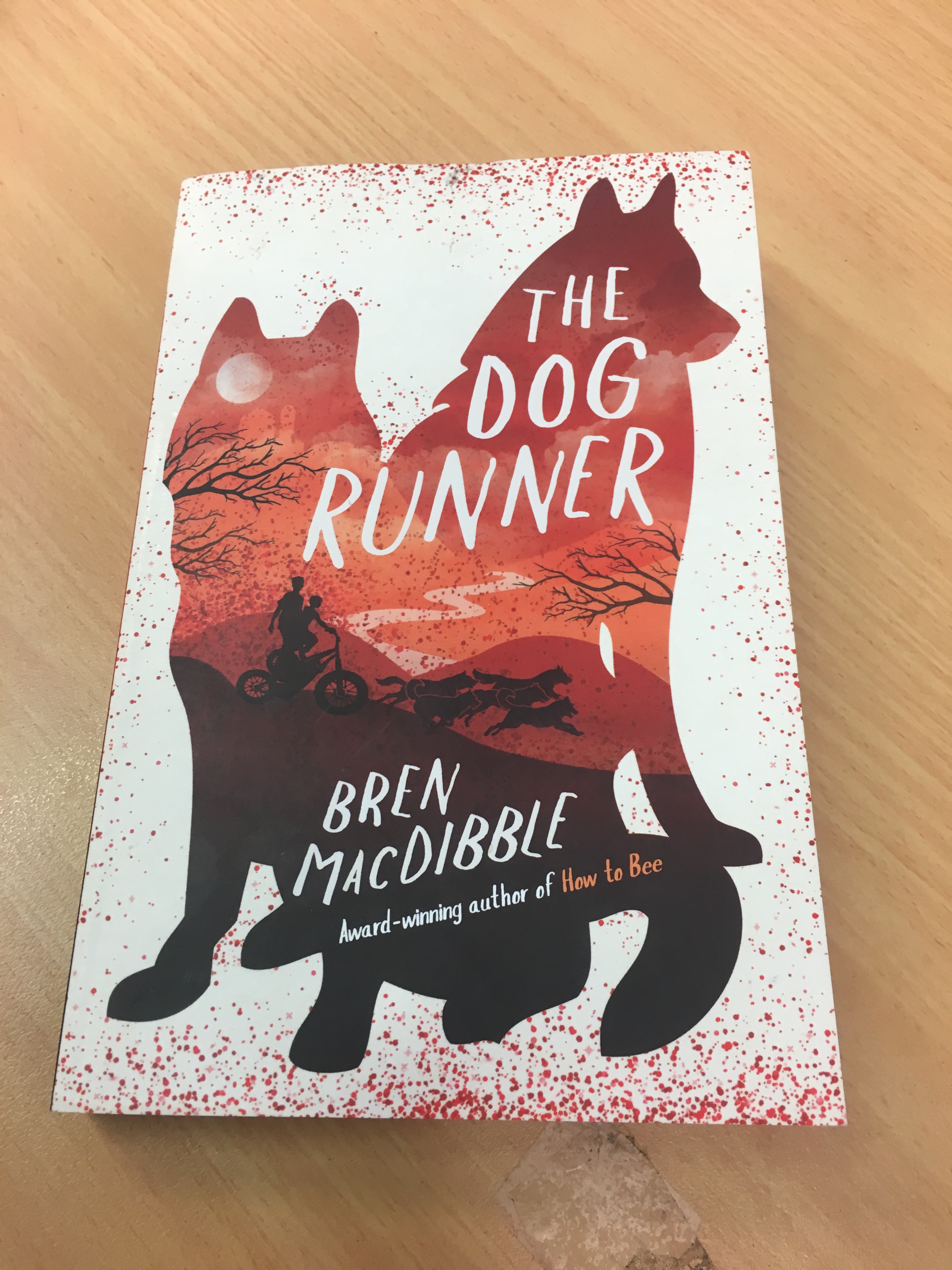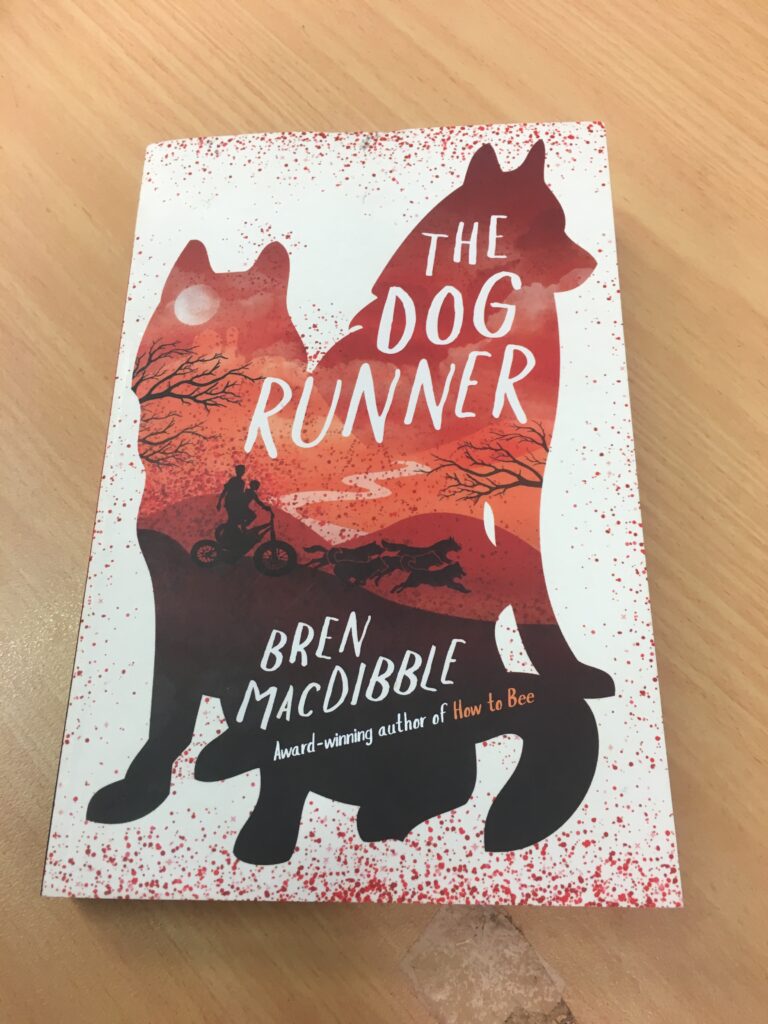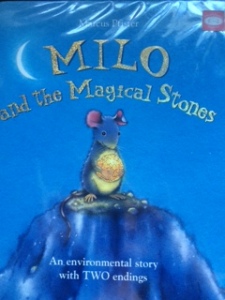“When the world turns upside down, the ones that survive are the first ones who learn to walk on their heads.”

The Dog Runner , written by Bren MacDibble is a poignant Middle grade fiction book that allows readers to delve into a world where food is scarce and the world population is suffering.
We meet Ella, the quiet city girl who has lost her mother and hasn’t seen her for 8 months. She borrows books from her neighbour by sliding them under his door and she remembers life before people started to become dangerous. Her father and brother live with her and each day, although comforting to still have some of her family, is an act of survival.
Until her Dad doesn’t return home.
Ella and her brother Emery need to find not only their Dad but also Ella’s mum and Emery’s home out in the Mallee scrub. If they can find this place not only will they find his family but they will be able to live off the land and not have to live off canned sardines and old books.
But to get there they need to pass people who will stop at nothing and land that has little water or shade. Ella and Emery shouldn’t have to take a dangerous journey like this – but they must.
But that’s when Maroochy, Wolf, Bear, Oyster and Squid come in – A pack of dogs who are strong enough to pull a sled across the barren land. The adventure starts when they take off from the city and it is non stop suspense as they bump and race over the land.
The Dog Runner highlights the importance of the danger of relying too heavily on the use of pesticides on farmed land, large corporations who focus on one type of grain and thinking we can constantly kill our soil and hope that it continues to give us more food.
In this world that Bren MacDibble creates, a fungus has killed all crops around the world and it is only the genius of Emery’s grandpa that gives Emery and Ella hope that the world will again be fed and hopefully more aware.
Indigenous farming methods are the best suited farming methods for Australia and it is about time that we started to take more notice of how they looked after the land and always had diversity in what they grew. Many crops in Australia are not suited to the climate and the soil has been mistreated so poorly that the reliance on pesticides is increasing.
This book sends a message to us all – re learn your Australian history and trust the methods and the crops that the first Australians grew. Stop relying on multinational companies and start looking towards smaller scale farms that take time to look after soils and produce.


